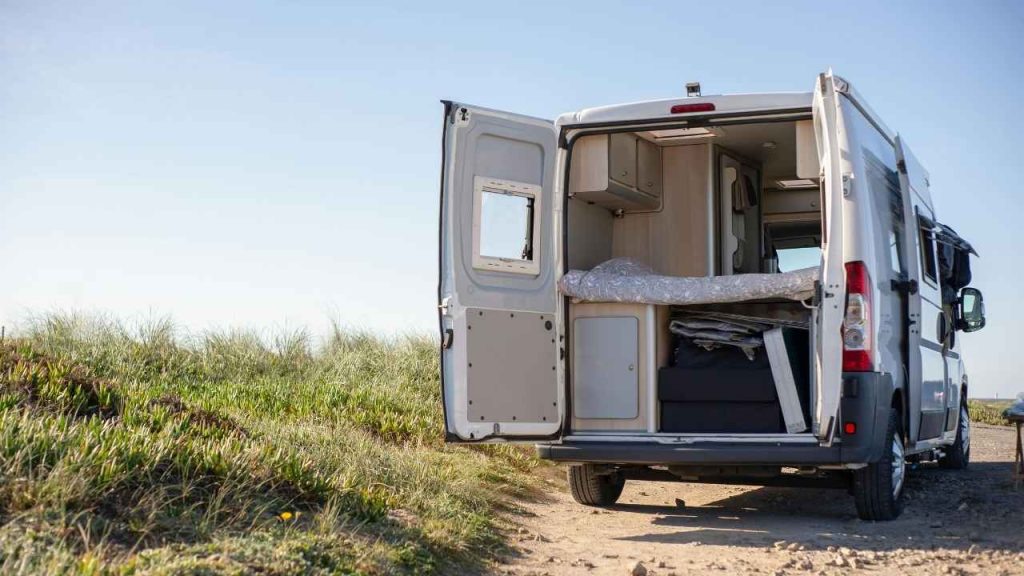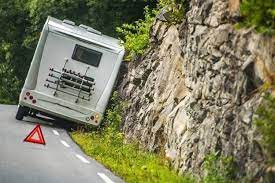
Suppose you are on a gorgeous road trip with your family in your class A motorhome or class C RV. However, the vehicle breaks down due to factors out of your control. It can be engine failure, a flood, an accident, or anything else for that matter. You cannot drive the motorhome back home, and you cannot remain stuck forever in another state or the middle of nowhere. So, the first question that comes to mind is how much does it cost to tow an RV? Who can tow it back to your place? And if the vehicle is beyond repair, what can you do with it? This article will try to answer these questions and more.
The Factors that Influence RV Towing Costs
Towing an RV can be a complex process that can cost a lot of money. However, a few factors determine how much an RV tow will cost. In addition to calculating towing costs, it is important to know how much your insurance will cover if your RV breaks down.
Vehicle size, your point of origin, and your destination are among the greatest factors that affect your broken motorhome’s towing costs. Even a short-distance trip can cost hundreds of dollars. In some cases, the price of towing an RV can rise dramatically. But let’s look at each of them individually.
1. The Size of Your RV
You first need to consider the size and type of your motorhome. The bigger your RV, the larger the tow truck you need. This will determine the hourly rate. Typically, the price range for towing a large RV is between $125 and $150 an hour. In addition, a larger RV will require more labor. Massive towed fifth wheels, for example, take more time and effort to navigate (on interstates or narrow city streets) than a smaller RV. Most companies operate with an hourly rate, while others will offer you a per-mile estimate. At $6-$7 per mile, towing a large RV for 50 miles can cost you up to $400 – $450.
The size is also directly linked to the tow company’s expenses regarding fuel. It’s infinitely costlier to tow a class-B motorhome or a toy hauler than another smaller vehicle. In other words, smaller RVs will cost you less overall than large vehicles because fuel is one of the most expensive factors influencing the end price.
2. The RV’s Current Condition
How broken is your motorhome? The answer to this question will impact the towing price. If you only have a flat tire, you might get off easier. However, if the towing company needs to deal with an RV with missing tires, a broken engine, a removed driveshaft, etc., your RV towing costs will increase tremendously. Loading a broken RV onto a trailer and traveling with it to your destination requires time, effort, equipment, human resources, and money.
3. Time of Day
As you can easily figure out, rush hour and nighttime will cost you more than low-peak traffic hours or clear daytime. Sometimes you cannot choose the “right time” for towing your RV, especially if you’ve been in an accident or the trailer broke down, and you need to get home fast. However, if you can choose, make sure you avoid rush hour, as the towing bill will be much higher because of the increased fuel usage, constant stops, and starts, endless time spent in traffic, risk of accidents, driver fatigue, etc.
4. Towing Time
Speaking of endless hours spent in traffic, the travel time from your point of towing to your destination influences the motorhome’s towing price. Since most towing companies operate under an hourly rate, the longer the travel time, the bigger your bill. Even if you find a towing company charging a flat advance and then a rate/mile, most such services will calculate an hourly fee depending on the type and size of your RV. Even if you have to tow it locally, you can still pay between $50 and $150 per hour.
5. The Weather
Your towing bill will undoubtedly reflect harsh weather conditions like heavy snow, hail, blizzard, flooding, etc. If the towing technicians’ journey is made difficult by extreme weather and the towing process is risky, they will certainly bill you more. If you have the choice of towing your old RV from point A to point B in good weather, do so. However, if you get stuck somewhere in very bad weather and need to get home, ask the towing company about the final bill, as you should expect to pay more.
Does Insurance Pay for Towing a Broken RV?
If you have an RV, you may wonder if your insurance will cover the costs of towing it if it breaks down. There are many factors to consider, including the amount of mileage the towing company charges, the distance from the nearest service center, and the difficulty of loading the RV. In addition, if your RV is parked on a slope, it will cost more to tow it than if it is parked on level ground.
The insurance on your RV can help cover some of the towing costs if your RV breaks down, so ensure you have the right coverage in place. However, most insurance companies don’t cover towing, so you might have to pay for the service from your own pocket. Discuss this coverage with your insurance agent before you leave on your trip.
If your insurance does not cover towing costs, you may want to look for a separate policy. Many companies offer roadside assistance, but your policy may not cover the fee for this service. Fortunately, there are some RV roadside assistance programs available that offer coverage in these situations. In addition, the AAA has some towing coverage for their members. If you are not a member and you approach them, they will be a bit more expensive, but they have the experience and equipment to solve your predicament.
In an accident, you will have to get through all the legal motions of recovering compensation for your expenses (including towing your RV back home, repairing it, etc.) from the driver deemed at fault for the accident. However, as you know, vehicular accident claims and lawsuits take a lot of time until they reach a favorable settlement. In other words, you must plan for all possible scenarios (including towing) before leaving for your road trip.
How Do They Tow Broken RVs or Motorhomes?
If you need to tow a broken motorhome, you’ll need specialized services as you don’t want to cause further damage to your vehicle or the motorhome occupants. In addition, you want the process to be quick and efficient.
First, you’ll need a towing company. They will come to your location with a heavy-duty trailer designed to tow large vehicles. When a motorhome breaks down, you’ll need a specialized service to tow your vehicle off the road. The towing technicians will secure your motorhome to the tow vehicle and can also fix flat tires if it is the case.
Tow trucks can tow a motorhome of up to 50,000 pounds and vehicles of 25 to 40-foot lengths. Typically, large and powerful trucks can handle a Class A motorhome. Smaller towing trucks are usually only equipped to tow Class C or Class B RVs (up to 12,000 pounds). Towing companies use specialized towing packages and systems to safely transport your RV from your location to the destination. Their vehicles use a lot of torque and power to do the job.
The towing company usually sends a flatbed trailer if your RV is drivable. The towing technician will drive your motorhome up the ramp and secure it. The operators will also ensure the vehicle is in a neutral position while the tow truck picks it up. If the vehicle is a rear-wheel drive, technicians will ensure the rear wheels are off the ground for safe towing.
A motorhome’s tires should be checked and topped off as needed. In addition, towing operators will ask you about the fluid level of the brakes. RV brakes are susceptible to blowouts, which can happen after a long drive or a bumpy ride. Also, before towing, it’s important to balance the axles of the RV to ensure that the weight is evenly distributed.
Remember that the hourly towing rate also depends on the length of your RV, not only its weight; subsequently, bigger vehicles require specialized towing vehicles, more work, and more people, especially if your RV isn’t drivable. Also, as we said, bigger RVs, such as huge 5th wheels or toy haulers, are much harder to manage than smaller trailers. Likewise, towing a huge motorhome requires specialized equipment and trained technicians.
What Do You Do with a Broken RV or Motorhome?
If you’re traveling with an RV, it’s important to know what to do if your vehicle breaks down. First, you should call a towing company specializing in hauling large vehicles. The tow operators can take the RV and tow it safely. In addition to towing, roadside assistance will provide you with services such as changing a flat tire, checking the brakes’ fluid levels, diagnosing engine troubles, and so on.
If you reach your destination and your RV is beyond repair or was totaled in an accident, you will most likely want to get rid of it to buy a new one. A simple search for “junk travel trailer removal in Wichita, KS“, for example, will bring up countless options. However, be aware that many removal services charge a fee. Most salvage yards will take your RV, but you’ll lose money in the process, especially if you have to call a towing company again to tow the junk to the yard.
Instead, a smarter idea is to sell your broken RV for cash. You might even benefit from free RV removal. Selling an old (drivable or totaled) motorhome for good money with free transportation of your property guarantees you get rid of your old vehicle, get a fair price for whatever is left of it, and clear your yard of an unsightly pile of metal that only collects rust.
Get in touch to learn more about selling your junk RV for good cash with no hassle!
FAQs: The Costs of Towing an RV
Towing an RV can be an unexpected expense, and many RV owners have questions about how much it will cost and what factors influence the price. Below, we answer some of the most common questions about RV towing service costs to help you better prepare for any situation.
What is the average cost for towing an RV per mile?
The RV towing cost per mile can vary depending on factors like the size of your RV, location, and towing company rates. On average, the cost of towing an RV ranges from $6 to $10 per mile. However, longer distances or emergency towing services may increase the rate.
How much does it cost to have an RV towed in an emergency?
Emergency towing rates are usually higher than standard towing fees. If you require immediate roadside assistance, the RV towing service cost may include extra charges for after-hours service or difficult recovery situations. Depending on the distance and complexity of the tow, the cost of towing an RV in an emergency can range from $250 to over $1,000.
Do RV roadside assistance plans cover towing costs?
Many RV roadside assistance programs cover towing, but the specifics depend on your plan. Some plans offer limited free miles, while others cover only specific types of tows. If your plan doesn’t fully cover the RV towing cost per mile, you may need to pay out of pocket for any extra distance. Checking your policy details before a trip can help you avoid unexpected expenses.
What factors affect the cost of towing an RV?
Several factors influence the final RV towing service cost, including the size and weight of the RV, the distance it needs to be towed, the time of day, and weather conditions. Additional costs may apply if special equipment is needed to load a damaged or disabled RV.
Can I get a flat-rate towing service for my RV?
Some towing companies offer flat-rate pricing instead of a per-mile charge. The average cost for towing an RV with a flat-rate service depends on the distance and difficulty of the job, but it can range from $300 to $1,500 for local tows. If you’re towing a long distance, you may still be charged a per-mile fee beyond a certain distance.





